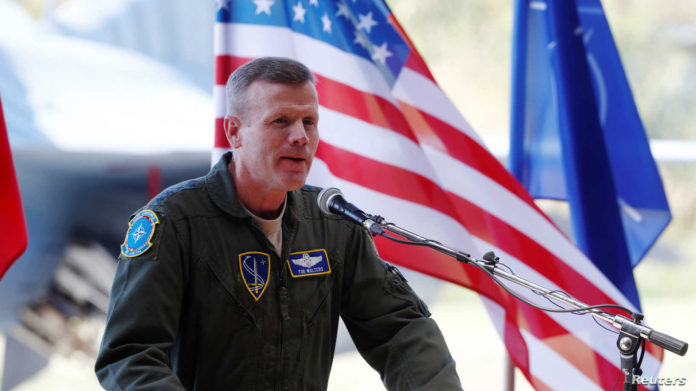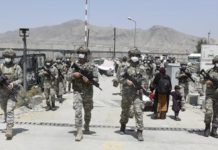
WASHINGTON – Growing tensions between Turkey and the United States do not have to result in the end of the long-standing alliance despite some major rifts between Ankara and Washington.
The most notable split has come over Turkey’s decision to proceed with the purchase of Russia’s top-of-the-line missile defense system, the S-400, seen as a threat to NATO defense systems and to the U.S. F-35 stealth fighter jet.
But the commander of U.S. European Command believes both countries have enough in common to salvage the relationship.
“The mil[itary]-to-mil[itary] convergence far outweighs the mil[itary]-to-mil[itary] divergence with the U.S. and Turkey and with NATO and Turkey,” General Tod Wolters told reporters during an appearance in Washington Tuesday.
“I saw no cracks in the armor in Turkey’s willingness to work side by side as a NATO partner with us,” he added, referring to talks with Turkish officials during the recent NATO meeting in London. “That’s what I know from my foxhole.”
The sentiment from the top-ranking U.S. general in Europe, though, contrasts with that of U.S. Defense Secretary Mark Esper, who warned Saturday that Turkey “may be spinning out of the NATO orbit.”
“I think Turkey has put itself in a position where it’s disadvantaged itself,” Esper said, adding he hoped relations could be repaired.
“They’ve fought with us from Korea to Afghanistan, and I think it’s in all of our interest to make sure that we pull them in closer to NATO,” he said.
But the hurdles are substantial.
Not only did Turkey incur the wrath of U.S. officials with the purchase of Russia’s S-400, it further raised the Pentagon’s ire with its decision to launch an incursion into northeastern Syria, targeting Kurdish forces that had partnered with the U.S. in the fight against the Islamic State terror group.
And there have been few signs Turkey is willing to back down. Officials there are still bristling at the U.S. decision to cut Ankara out of the F-35 development program and ban sales of the jet to Turkey.
Turkish Defense Minister Hulusi Akar on Monday threatened that his country “will naturally seek other quests” if Washington did not reverse its freeze on sales of the stealth fighter jet.
Other Turkish officials have said they will consider buying Russian-made jets, like the advanced Su-35 multirole fighter, if the U.S. does not change its mind.
Turkey’s stubbornness has not gone over well with U.S. lawmakers, who have grown increasingly vocal in calling for the U.S. administration to sanction Ankara under the Countering Russian Influence in Europe and Eurasia Act (CAATSA).


























